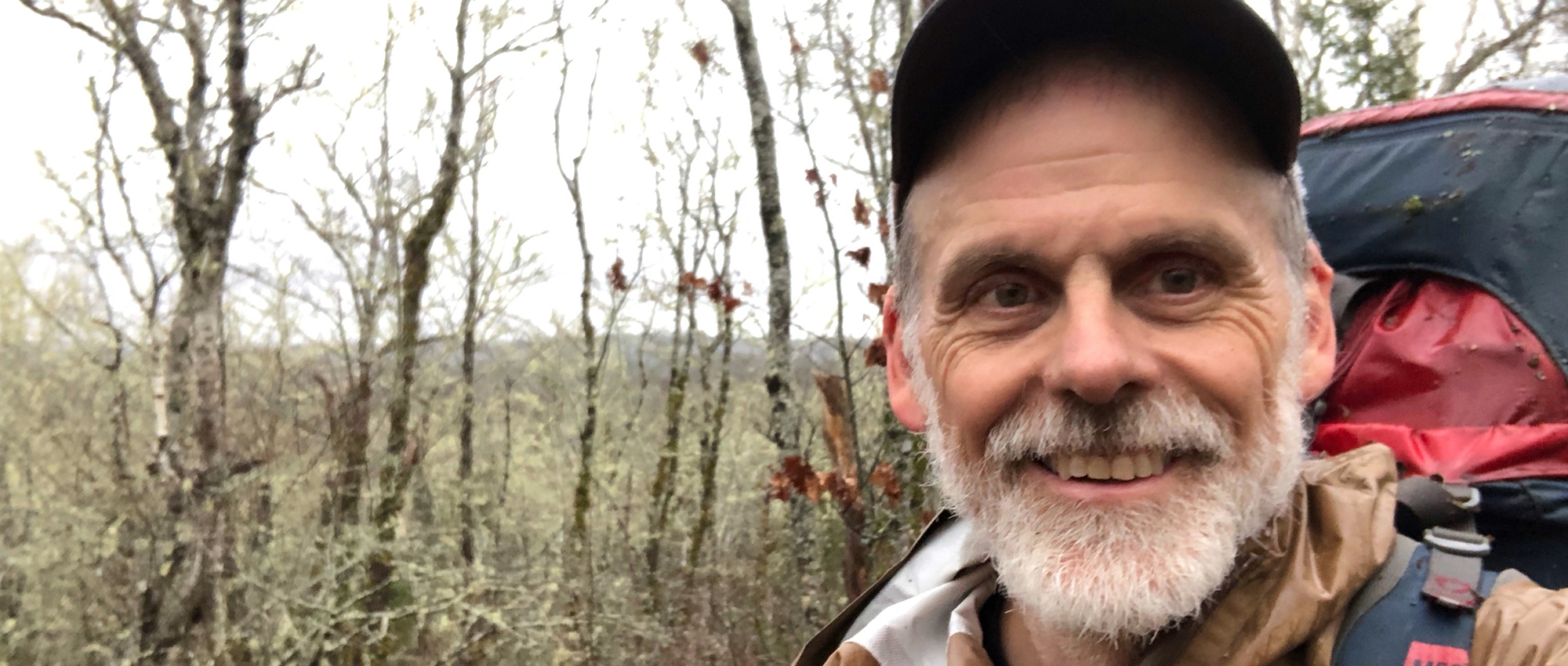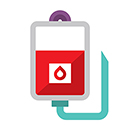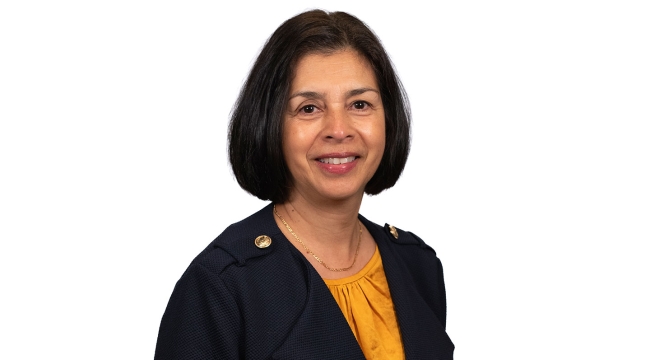Blood donors are essential to this ultramarathon runner’s lymphoma battle
Jonathan Riley had hiked solo across Nova Scotia in mid-winter just months before his cancer diagnosis
Today, patients across Canada need donors more than ever. You can donate blood or plasma, join the stem cell registry, and register your intent to donate organs and tissues. Please give like lives depend on it — because they do.
Jonathan Riley, an active outdoorsman and ultramarathon runner, spent the last days of December 2020 hiking solo across Nova Scotia — just for fun.
“I'm single, my son’s grown, and I was looking at this COVID Christmas where we couldn't be with people the way we normally could,” explains Jonathan, 53, who also regularly leads hikes in his role as the Trails and Open Space Coordinator with the municipality of Digby, N.S. “I had a friend drop me off in Shelburne on Dec. 23 with a backpack, and I walked through the woods across the province.
“In the middle of the trip, I had to swim across a frozen river because there was no other way to get around it. Just take off all my clothes and jump in, dragging my bag over. I felt unstoppable.”
Nothing could stop this blood recipient
Jonathan certainly had no plans for stopping. Earlier that year, he’d run a 100-kilometre race in 18 hours, and his plans for 2021 included a 160-kilometre ultramarathon. But in the months that followed his cross-province holiday trek, signs of trouble appeared.
First, running felt harder. He chalked it up to a knee injury he’d suffered while responding to a house fire as a volunteer firefighter. But later, while preparing for a canoe trip, friends also noticed he looked pale. And sometimes, he felt short of breath.
Thinking low iron might be to blame for his symptoms, Jonathan increased his red meat intake. But it didn’t help.
“When I couldn't walk upstairs, I said, ‘something is wrong,’” Jonathan says.
When he sought medical attention, doctors discovered he had a dangerously low hemoglobin level. It wasn’t clear why, but the symptom called for an immediate blood transfusion. More followed in the days afterward.
“The transfusions kept me alive while they tried to get this thing under control,” he says.
Within a few weeks, Jonathan had a scary diagnosis: non-Hodgkin lymphoma. It’s a cancer that develops in the lymphatic system and causes infection-fighting white blood cells called lymphocytes to multiply in an abnormal way.
For treatment, Jonathan has had to travel to a hospital in Halifax, a three-hour drive from Digby. And blood transfusions have continued to play a role. Both lymphoma and the treatment can prevent normal production of blood in the bone marrow.
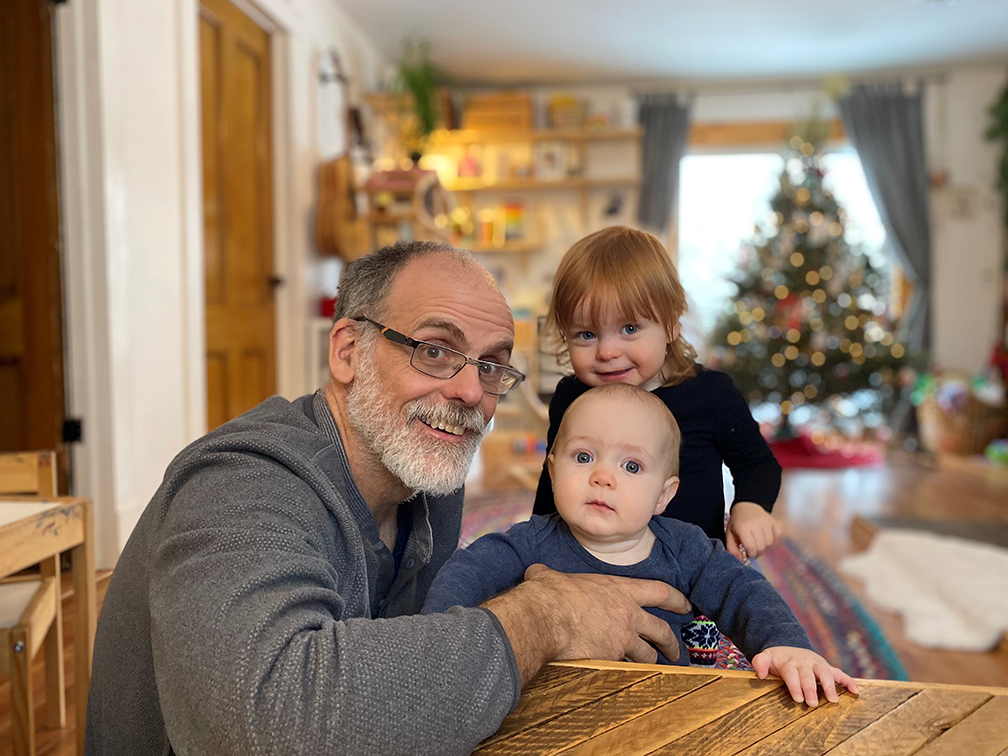
Jonathan Riley was able to enjoy Christmas with his granddaughters thanks to blood donors who support him while he battles non-Hodgkin lymphoma
Blood products are necessary for Jonathan
Jonathan has regular blood tests to monitor his red blood cells, white blood cells and platelets, and he receives transfusions as needed to support chemotherapy. Without them, his body would not be able to withstand the treatment.
The generosity of blood donors also made it possible for Jonathan to enjoy Christmas 2021 with his granddaughters. He had a blood transfusion just before the holiday to prepare him for another round of chemotherapy, and it gave him a precious boost of energy.
“I wasn’t walking across the province for Christmas, but I spent it with my son and his family, which was wonderful,” says Jonathan. “I was able to keep up with my granddaughters because of blood donations.”
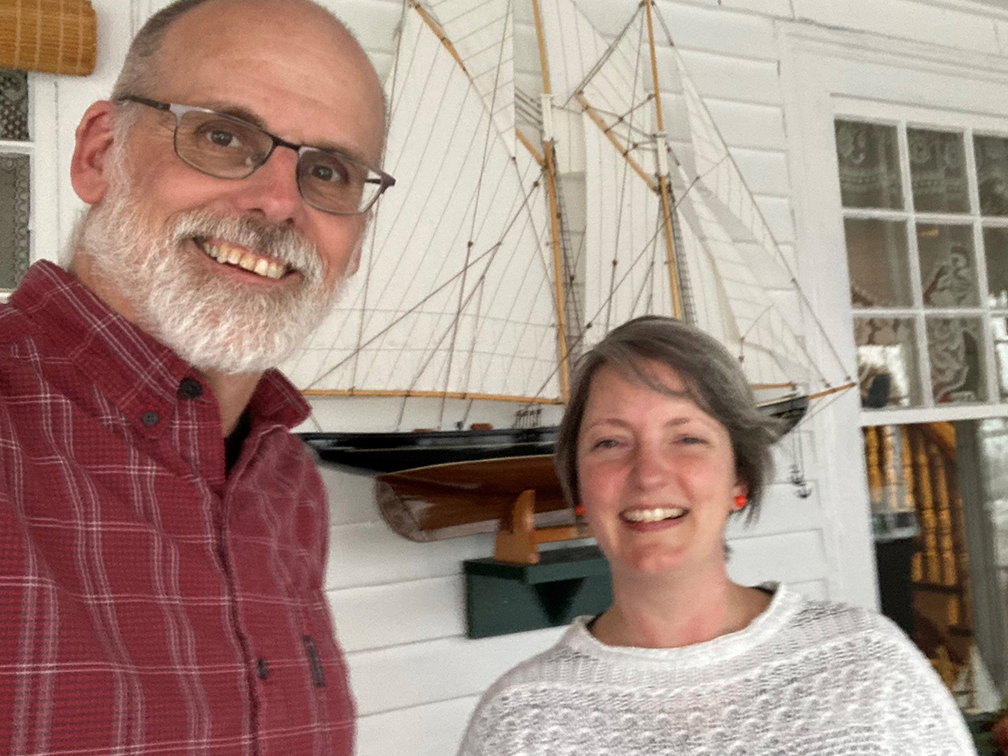
Jonathan Riley, left, requires blood transfusions while being treated for non-Hodgkin lymphoma. Angela Turner, right, is a friend of Jonathan’s, and she has started donating blood in his honour.
While his journey with lymphoma started just a few months ago, Jonathan has already inspired friends to become blood donors. One of them, Angela Turner, had been a blood donor years ago, but had gotten out of the habit.
“It’s been in the back of my mind for a while to make an appointment with Canadian Blood Services,” she says. “When Jonathan started getting his blood transfusions and I found out we had the same blood type, I told him he could have my blood any time. It then dawned on me that this could be a way to honour Jonathan and his journey with cancer.”
Another friend, Jenn Hoegg, started donating blood shortly after the start of the COVID-19 pandemic.
“In the spring of 2020 I felt like I needed to do something to help beyond abiding by public health restrictions. So, I signed up at the next clinic in my community and I’ve been donating regularly for almost two years,” says Jenn.
Seeing a friend benefit from blood donations has only increased her motivation to continue.
“Having Jonathan share his experience with transfusions has satisfied some of my curiosity about who else the donations go to,” Jenn says. “Donating is easy and very well-organized! It only takes about a half hour, and everyone at the clinic is friendly. I wish I had started earlier.”
What is the process to donate blood?
Blood donations provide a gift of energy and time
After receiving a blood transfusion, Jonathan notices a big difference in his energy levels and mental clarity. They’ve given him vigor for everyday tasks, in addition to the better quality time with his young grandchildren.
“After my second blood transfusion, I remember I jumped up onto the curb by the door at the grocery store, with a spring in my step. And I thought, ‘who's this guy? What is this all about?’ recalls Jonathan. “I still can't do everything I want to do, but my mind is clearer, and I can do things like clean the house. That's what the transfusions do for me.”
He’s also keenly aware that those same blood transfusions are buying doctors the time they need to fight his cancer.
“It’s started to sink in that If it wasn't for blood donations, maybe there wouldn't be time to treat the lymphoma,” he says.
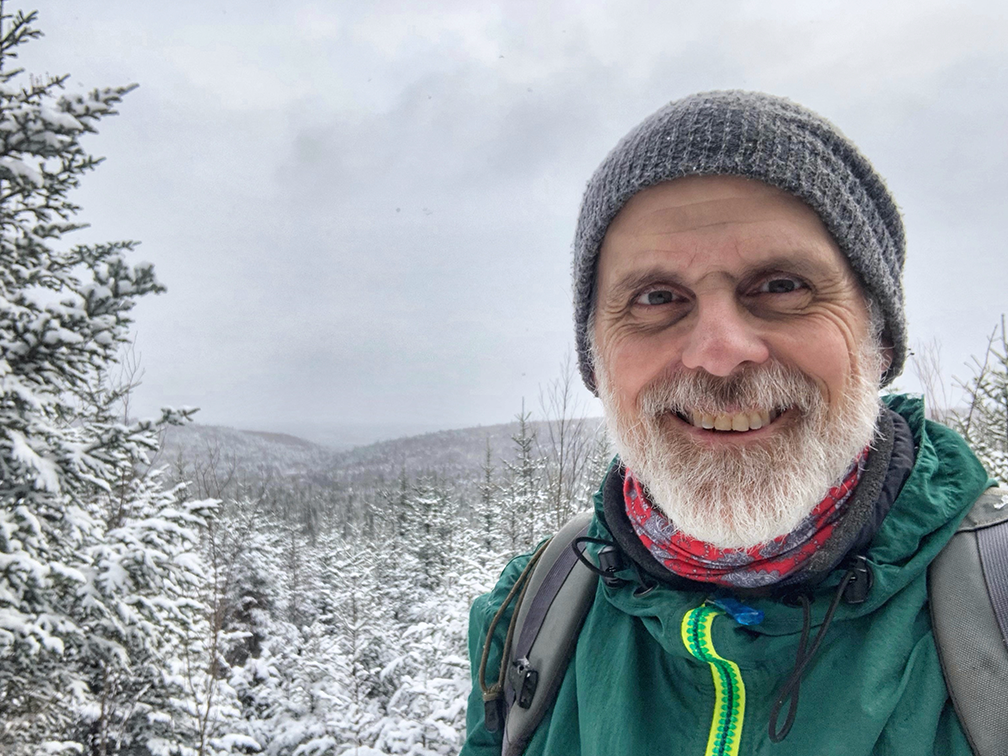
Jonathan Riley is able to enjoy activities like hiking while going through treatment for non-Hodgkin lymphoma, thanks to the blood donors who contribute to his transfusions.
Navigating cancer has given Jonathan a whole new perspective on the health care system, including the importance of blood donors within it.
“I'm keeping a list, and I think I'm at 48 different healthcare workers who've actually touched me,” he says. "And there's so many more that I don't see, like pharmacists and the people who work with blood products.
“And then you think there's complete strangers out there who donate blood. Without them, none of this happens. They're saving lives.”
